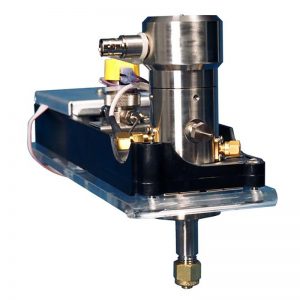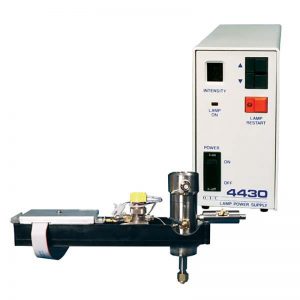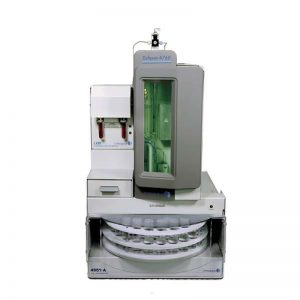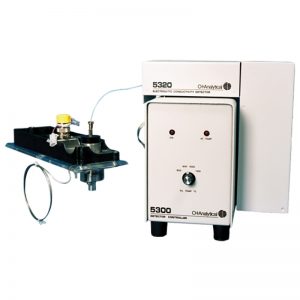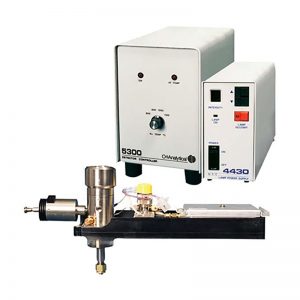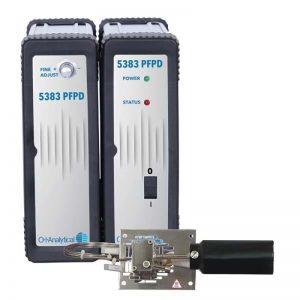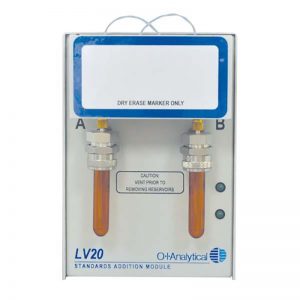Description
4100 Water/Soil Sample Processor
Improve sample processing reliability and analytical performance with the Model 4100 Water/Soil Sample Processor. This automated instrument is efficiently built to process up to 100 drinking water, wastewater, or soil samples.
Say goodbye to handling and processing samples for purge-and-trap analysis of volatile organic compounds (VOCs). The 4100 Sample Processor is designed to operate with (single or dual) Eclipse 4760 purge-and-trap sample concentrators.
4430 Photoionization PID
The Model 4430 Photoionization Detector (PID) is a uniquely-designed gas chromatograph (GC) that selectively responds to aromatic and olefinic hydrocarbons in the presence of alkanes and other saturated hydrocarbons.
Our Model 4430 PID’s unique patented Window Sweep™ design prevents the sample stream from contacting and contaminating the lamp window.
4450 Tandem PID/FID
Experience the convenience and flexibility of the Model 4450 Tandem Photoionization Detector/Flame Ionization Detector (PID/FID): a patented combination gas chromatography (GC) detector incorporating the Model 4430 PID and Model 4410 FlD.
4551A Purge-and-Trap Water Autosampler
Improve sample accuracy and save lab counter space with the Model 4551A Water Autosampler. Designed to work with our 4760 Eclipse Purge-and-Trap Autosampler, the 4551A automates VOC analysis for up to 51 clean or lightly particulated water samples.
The extremely compact 4551A Water Autosampler fits strategically under the 4760 Eclipse to save bench space. The instrument precisely transfers water samples from standard 40-mL volatile organic analysis (VOA) vials to the sparge vessel of the 4760 Eclipse for purging.
4760 Eclipse Purge-and-Trap Sample Concentrator
The 4760 Eclipse Purge-and-Trap Sample Concentrator uses a slim-line design and intuitive user interface to analyze volatile organic compounds (VOCs) quicker and more efficiently. Use to effectively monitor drinking water, wastewater, groundwater, storm water and more!
The Model 4760 combines our 30+ years of VOC experience in one highly-productive instrument. Users can expect faster cycle times, higher sample throughput, and exceptional reliability.
5320 Electrolytic Conductivity Detector (ELCD)
The Model 5320 Electrolytic Conductivity Detector (ELCD) excels in select detection of halogen-containing compounds, while also proving its flexibility by offering sulfur and nitrogen detection.
The Model 5320 is our third-generation ELCD. It combines three key components: a reactor assembly, cell-solvent assembly, and detector controller.
5350 Tandem PID/ELCD
Increase efficiency and save counter space with the Model 5350 Tandem Photoionization Detector/Electrolytic Conductivity Detector (PID/ELCD), a smartly designed instrument for dual detection of aromatic and halogen compounds.
The Model 5350 Tandem PID/ELCD packs in the power of two great detectors: Model 4430 PID and Model 5320 ELCD, removing the need for separate analyses of aromatic and halogen compounds.
5360 XSDTM (Halogen Specific Detector)
The Model 5360 XSD™ offers superior selectivity for detection of halogen-containing compounds.
Installed in the standard port of a gas chromatograph (GC), the Model 5360 XSD™ detects halogen-containing compounds eluting from the GC’s capillary column. This instrument is unique in the fact that it doesn’t contain radioactive sources or use organic solvents like other halogen selective detectors. This eliminates the need for catalyst tubes, solvents, resin cartridges, pumps, and transfer lines.
5383 Pulsed Flame Photometric Detector (PFPD)
The Model 5383 Pulsed Flame Photometric Detector (PFPD) uses superior sensitivity and increased selectivity to easily and accurately analyze sulfur, phosphorus, and 26 other elements.
The superior sensitivity of the 5383 PFPD makes it the instrument of choice for the analysis of sulfur, phosphorus, and other elements. Its linear, equimolar response to sulfur allows selective measurement of individual sulfur species from low ppb to ppm levels, and total sulfur as the sum of individual peaks. The unique capability to obtain simultaneous sulfur and hydrocarbon chromatograms from a single PFPD detector sets it apart from other sulfur detection technologies.
5390 Tandem PID/XSD
Work smarter with the Model 5390 Tandem PID/XSD, which combines the power of the 4430 Photoionization Detector (PID) and the 5360 Halogen Specific Detector (XSD) to simultaneously detect halogen and aromatic compounds.
This patented tandem detector offers the production of two gas chromatograph (GC) detectors, the 4430 PID and 5360 XSD, in one efficient package. Its unique design eliminates transfer lines and uses only one detector port.
LV-20 Standards Addition Module
The LV-20 Standards Addition Module pairs with our Model 4551A Autosampler to improve accuracy and precision of GC-GC-MS analyses, while minimizing standard usage and decreasing laboratory costs of expensive standards.
Designed as an option for the 4551A Autosampler, the LV-20 Standards Addition Module injects programmed volumes (1, 2, 5, 10, or 20 µL) of internal standard, surrogate, or matrix spike standards to improve the accuracy and precision of GC-GC-MS analyses. The LV-20 is equipped with high-speed injection valves which inject user-programmed volumes of standard with no excess overfill volume that fixed-loop based systems require to operate. All LV-20 functions are programmed using the intuitive touchscreen and Windows® CE software on the Eclipse 4760 Purge-and-Trap Sample Concentrator.







